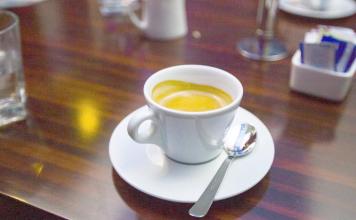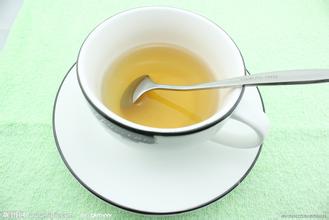Unique fragrant Ethiopian Coffee Manor Flavor and Taste characteristics of Fine Coffee beans
In addition, it should be mentioned that most of them are produced by state-owned institutions, but the quantity is small and is not well known to the world. Only the understated Teppi and Bebeka;Teppi grow between 3600 and 6200 feet above sea level, with an annual output of about 50000bags/60kg. Bebeka grows at an altitude of 3000-3900 feet, with an annual yield of about 30000bags/60kg. They are planted in the lower part of southwest Ethiopia, almost as a blend on the Southern Ethiopian Plateau, 5700-7800 feet above sea level, located in the northwest of Sidamo province, around Lake Abaya, usually with obvious sweetness and loved by most people, with an annual output of about 225000bags/60kg. The bean body is smaller than Longberry and the color is green and gray. Most of them are washed In the washing plant, the coffee fruit is fermented in the storage tank full of water after harvest, and the workers use a simple wooden rake to stir it to facilitate the smooth cleaning. The washing plant always has a pungent acid fermentation smell and the sound of the fruits in the sink colliding with each other. After the fruit is sticky and soft, it is directly shelled and cleaned, leaving only the fruit covered with sheepskin. After the final washing, the fruit is dried directly outside the washing plant.
A complex with a taste similar to lemon and citrus, with excellent viscosity and complex flavor (I think it is sometimes suspected of being overemphasized and exaggerated because of its loud name, even though I like its flavor), most of them are exported to G2. Suitable for medium-baked Ethiopian coffee beans grow in close to the natural environment, after years of planting under the same growth conditions At present, Ethiopian coffee beans have gradually adapted to the environment here. More than 60% of coffee beans are grown in forests or semi-forests.
Large-scale coffee-growing villages account for about 35% of the country's total coffee production. These coffee farms, which use a multi-tier coffee planting system, are carefully cared for. Coffee farmers do not use chemical fertilizers, but use fallen leaves and animal and plant debris to increase soil nutrition. In addition to coffee, farmers also frequently grow non-coffee crops. Even manor coffee (coffee produced by state-owned farms), which accounts for 5% of the country's total coffee production, shows the characteristics of forest coffee production.
Located in the most advantaged natural conditions, Ethiopia produces unique high-quality coffee every year. Ethiopia's coffee growing cycle brings the joy of harvest to the country every year. Beautiful white coffee flowers will bloom and bear fruit every year from March to April. Only the reddest and ripe fruits are selected as coffee ingredients between September and about December. The export of new coffee begins in November or December every year.
A brief introduction to the flavor of coffee
Ethiopia has a unique flavor that is different from other flavors and provides customers all over the world with a wide range of taste choices.
In the highlands of southwestern Ethiopia, the Kaffa, Sheka, Gera, Limu and Yayu Senri coffee ecosystems are considered the hometown of Arabica coffee. These forest ecosystems also have a variety of medicinal plants, wild animals and endangered species.
The highlands of western Ethiopia have given birth to new varieties of coffee that are resistant to fruit disease or leaf rust. Ethiopia has many world-famous types of coffee. Some of the main types of coffee are famous for their unique aroma and flavor.

Important Notice :
前街咖啡 FrontStreet Coffee has moved to new addredd:
FrontStreet Coffee Address: 315,Donghua East Road,GuangZhou
Tel:020 38364473
- Prev

Fragrant and delicious Nicaraguan Coffee Manor Tianyi Manor Coffee flavor and taste characteristics of the producing area
Since July 1927, Augusto. Cesar. Sandino led the people in a guerrilla war against the US occupation, forcing the US military to withdraw in 1933. On February 21, 1934, the Commander of the Nicaraguan National Guard, Anastacio. Somocha. Garcia assassinated Sandino at the behest of US President Roosevelt. He became president in 1936 and has been pro-American for more than 40 years since then.
- Next

Characteristics of Flavor and Taste in Sidamo Coffee Manor
In February 1977 during the Mengistu dictatorship, Lieutenant Colonel Mengistu Hale Maryam (MENGISTU HAILE MARIAM) launched a military coup and served as chairman and head of state of the interim military Administrative Council. In 1979, the Ethiopian Labor people's Party Organization Committee, dominated by soldiers, was established to implement an one-party system. In 1984, the Ethiopian Workers' Party was formed according to the Soviet Communist Party model. nineteen
Related
- Does Rose Summer choose Blue, Green or Red? Detailed explanation of Rose Summer Coffee plots and Classification in Panamanian Jade Manor
- What is the difference between the origin, producing area, processing plant, cooperative and manor of coffee beans?
- How fine does the espresso powder fit? how to grind the espresso?
- Sca coffee roasting degree color card coffee roasting degree 8 roasting color values what do you mean?
- The practice of lattes: how to make lattes at home
- Introduction to Indonesian Fine Coffee beans-- Java Coffee producing area of Indonesian Arabica Coffee
- How much will the flavor of light and medium roasted rose summer be expressed? What baking level is rose summer suitable for?
- Introduction to the characteristics of washing, sun-drying or wet-planing coffee commonly used in Mantenin, Indonesia
- Price characteristics of Arabica Coffee Bean Starbucks introduction to Manning Coffee Bean Taste producing area Variety Manor
- What is the authentic Yega flavor? What are the flavor characteristics of the really excellent Yejasuffi coffee beans?

